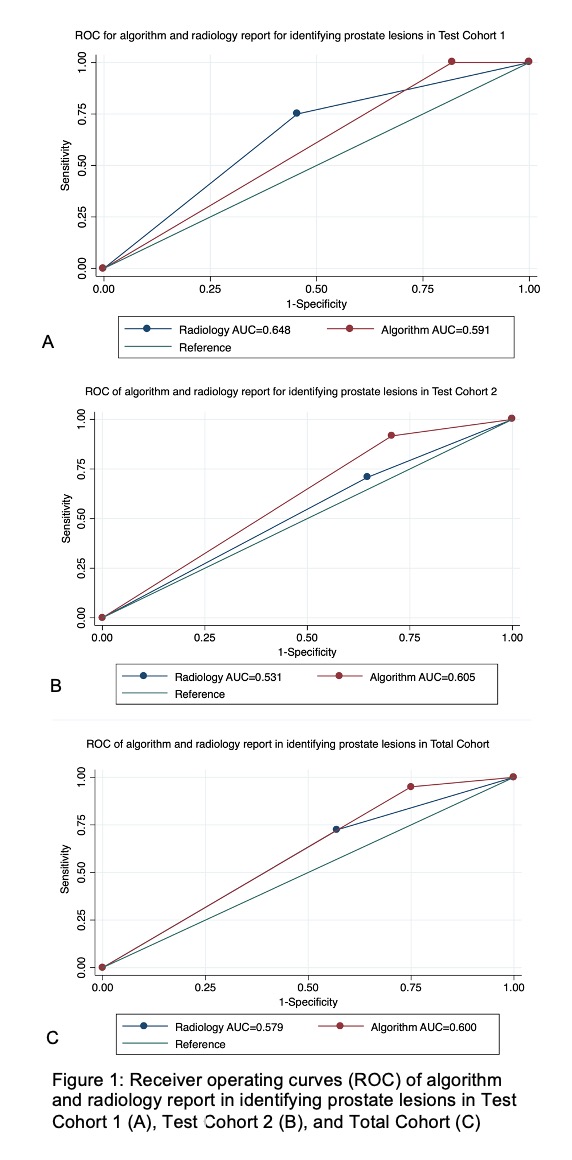Evaluation of Artificial Intelligence Algorithm for Automated Prostate Lesion Detection and Classification on mpMRI using African American Patient Cohort
Jacob N. Bamberger, BS, John Hordines, BS, Kyra Gassmann, BS, Lulu Wei, BS, Blaine Russ, BS, Lakshay Khosla, BS, Andrew Winer, MD, FACS.
SUNY Downstate Health Sciences University, Brooklyn, NY, USA.
BACKGROUND: The objective of this study is to evaluate a novel, deep-learning artificial intelligence (AI) algorithm for automated prostate cancer detection and classification on multi-parametric magnetic resonance imaging (mpMRI) using a cohort of African American (AA) men.
METHODS: A retrospective review of AA patients with mpMRI and biopsy within 9 months of imaging was conducted. Biopsied lesions with Gleason Grade 3 or greater were deemed cancerous. PSA, mpMRI images, pathology and radiology readings were packaged and analyzed using the algorithm. The study sample was split into two test cohorts and analyzed sequentially to assess if machine learning improved performance. Receiver operator curve (ROC) area was used to evaluate algorithm and radiologist performance in correctly detecting cancerous prostate lesions using biopsy data as the “gold standard” classifier.
RESULTS: Sixty-eight AA men were included in the study, 27 in Test Cohort 1 and 41 in Test Cohort 2. In Test Cohort 1, AUC (95% confidence interval [CI]) for radiology and algorithm were 0.648 (0.46, 0.84) and 0.591 (0.48, 0.71), respectively. In Test Cohort 2, AUC (95% CI) for radiology and algorithm were 0.531 (0.38, 0.68) and 0.605 (0.48, 0.73), respectively. Across the Total Cohort, AUC (95% CI) for radiology and algorithm was 0.578 (0.47, 0.69) and 0.600 (0.51, 0.69), respectively (Figure 1). CONCLUSIONS: We conclude that compared to radiologist reports, this novel AI algorithm demonstrates non-inferiority in detecting cancerous prostate lesions in AA men. Additionally, the improved AUC across test cohorts is suggestive that machine learning improves algorithm performance. 
Back to 2022 Abstracts


